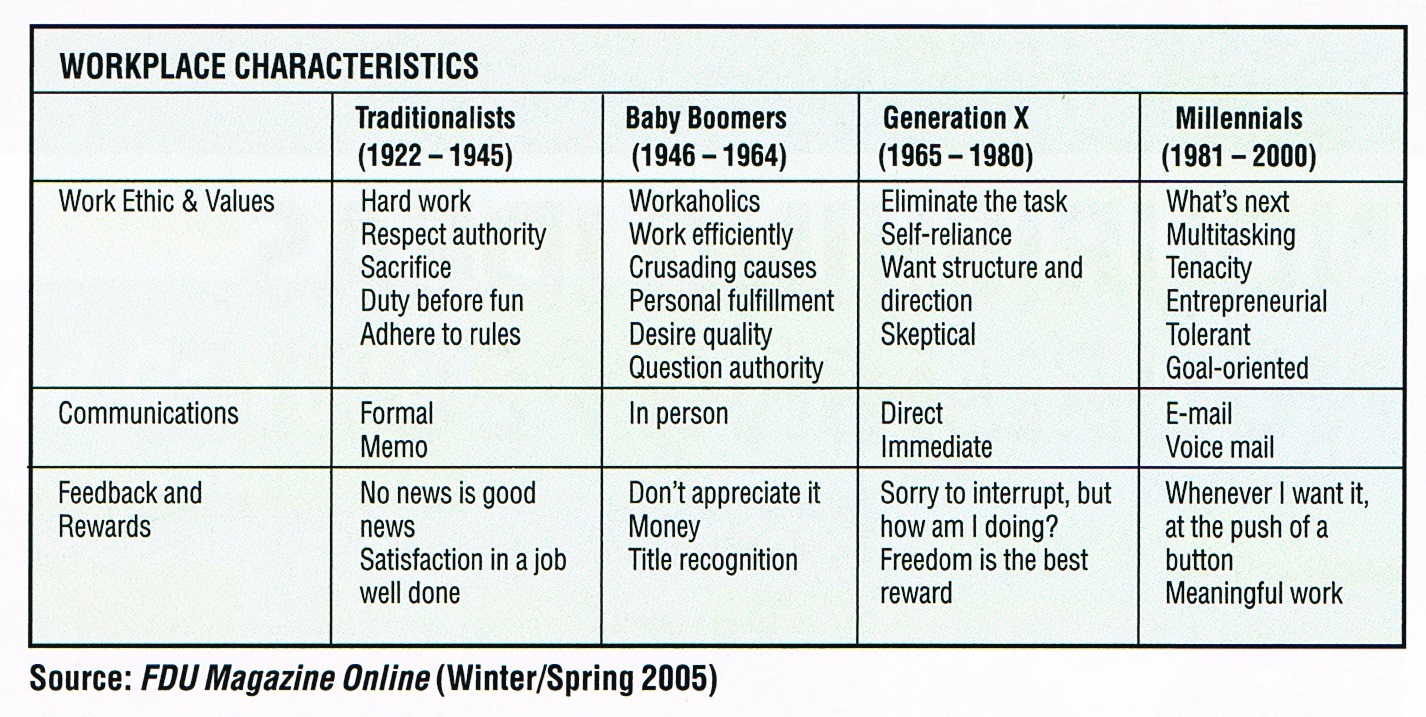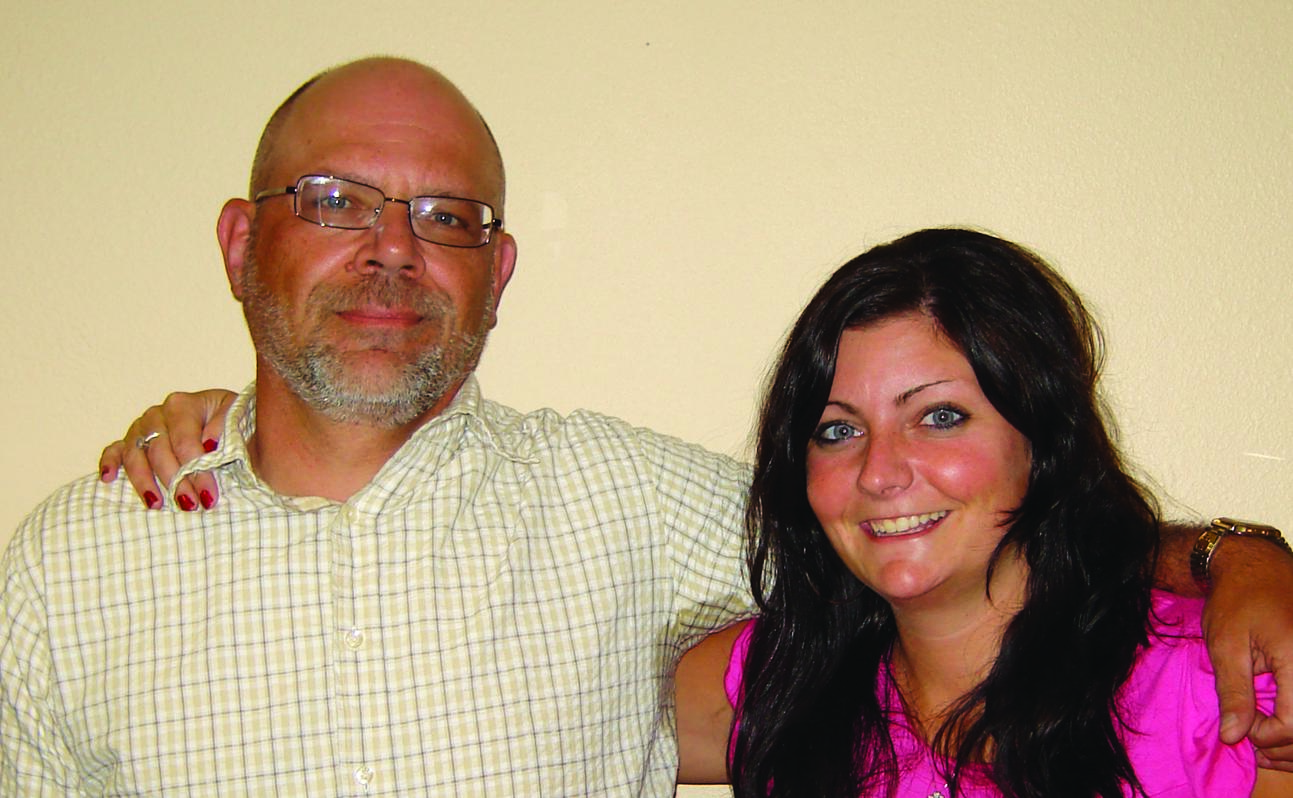- Candidates
- Login
- Set Up Account
- Create a Job Alert
- Search Tools
- Resources
- Employers
They are technologically savvy. They are innovative. They are achievement-orientated. They are Millennials.
Millennials, the generation born from approximately 1981–2000 — the students of today, have also been called self-centered, disloyal, and over confident. But no matter what we call them, Millennials are an important part of the workforce and offer employers a lot of opportunities.
In addition to Millennials, there are currently three other generations present in the workforce: Traditionalists — those born before 1946, Baby Boomers — those born from 1946–1964 and Generation X — those born from 1965 to 1980.
Each generation is different, and being able to understand and work with those differences is vital to an organization’s success, said Melinda Mullenix, Human Resources Services Manager for AgCareers.com.
Mullenix said the Millennials make up 10% of the current workforce. That number is important as the Millennial generation will have to help fill the positions vacated by retiring Baby Boomers. Mullenix said 75% of agribusiness employers will see one to five percent of their workforce retire in the next one to two years, and 10% will see six to ten percent exit the workforce during that same time period.
So if the Millennials are here to stay, what can they bring to the table?

What They Have to Offer
If they are taken seriously, Millennials can be very beneficial to the organization, said Alexandra Levit, President of the career consulting firm Inspiration at Work and author of “Success for Hire Simple Strategies to Find and Keep Outstanding Employees.” “They are highly entrepreneurial and aren’t content to go with what has always been done,” she said. “They relish responsibility. They thrive on challenging work, creative expression and innovation.”
Levit points out that the Millennial generation is relatively inexpensive labor, but they can contribute a lot. She said from a costbenefit perspective, they are very valuable to an organization.
Mullenix said that it’s important for the generation to feel valuable. She said they appreciate when their ideas are considered because they need to feel like they have provided something to the organization. “They need to be given tasks that they consider meaningful in order for them to see how they contributed to the overall finished product,” Mullenix said. “They like to be challenged and treated with respect.”
Heather Anderson, Western Field Representative for Ontario Holstein, agrees that the Millennial generation likes to be challenged. Anderson falls between the younger two generations. She is the youngest of a five-member team that works specifically with the Ontario Holstein branch. She said the younger generations bring many things to the workplace. “The younger generations bring flexibility, the willingness to learn knew things and knowledge about technology and how to maximize it,” she said.
Anderson said the younger generations are also known for asking a lot of questions. She said sometimes these traits can create conflict in the workplace, because they differ from the traits of older generations. “I think it is hardest to work with the Traditionalists and older Baby Boomers because they are unaware of all of the technology out there, or they find it difficult to operate it,” Anderson said. “It’s difficult to connect with this generation as it would seem to them that we are know-italls, but sometimes we just understand technology better.”

To prevent misunderstanding between generations, communication is key, said Bob Brcka, General Manager at PigCHAMP, a software company for the swine industry.
“I think both employers and Millennials need to recognize that you can’t assume that you are always going to be communicating effectively when you are communicating with different generations,” he said. “A good manager will recognize that, but the young person coming into the workforce also needs to figure out how their boss communicates, and alter their way of communicating to meet them half way.”
Brcka belongs to the Baby Boomer generation and has experience managing those from different generations. One of his employees, Jessica Drey, belongs to the Millennial generation. Drey is an account manager for the company and is the youngest staff member.
Drey said it is challenging to work with those who have children around the same age as her. She said she understands how it would be difficult for a co-worker to take her ideas seriously, when they may be thinking “she’s young enough to be my child.”
At times she has had to overcome the stereotypes that accompany the Millennial generation. “There are times when I feel as though other employees or managers think that I do not completely understand what is happening, because I don’t have the years of experience that they possess,” Drey said. “But unlike many of the older generations, I have a fresh perspective of new technologies and a wide variety of hands-on experiences that. I had the opportunity to obtain during college.” Levit said this is common in many organizations. She said Millennials have a reputation that often precedes them. “Unfortunately early Millennials were accused of having a sense of entitlement and having things handed to them on silver platter,” Levit said.

Brcka said that he has noticed the younger generations are more laid back and want to develop a healthy work/ life balance. He said this is very different from his generation who was taught to put work at the center point of their lives. So how does Drey work through these differences?
She said it’s easier to overcome the stereotypes and gain support if you are a dependable worker. “It’s important to work hard in order to earn the respect from other team members,” she said. “If you continue to prove yourself, your team members will gain confidence in your abilities and what you have to offer.”
Besides working diligently, Millennials can do other things to better transition into the workforce. Levit said that Millennials should seek out a mentor who is just a couple of years older and a little further up on the ladder. She said those are the people who will be able to better-relate to the individual by sharing their recent experiences. Levit also advises Millennials to develop a “professional persona.” “In order to have a positive effect, you need to develop professional verbal and written communication skills,” she said. “Have a good attitude and sustain that attitude when faced with unfortunate circumstances. I’m not saying you shouldn’t be yourself, but be a professional version of yourself.” Brcka agrees that professionalism will help Millennials be better received in the workplace. He also recommends learning how to take constructive criticism.
“Millenials tend to be a little sensitive to feedback if it’s not 100% positive,” he said. “They have a tendency to take criticism personally and at some point they need to learn to value it.” Drey has learned to appreciate constructive criticism during her two years at PigCHAMP. She said she has learned to accept it and use it to make her better. “Be prepared to get feedback from a lot of different people,” Drey said. “You may not be pleased with it, but their input is going to be very valuable in making you the best you can be.”